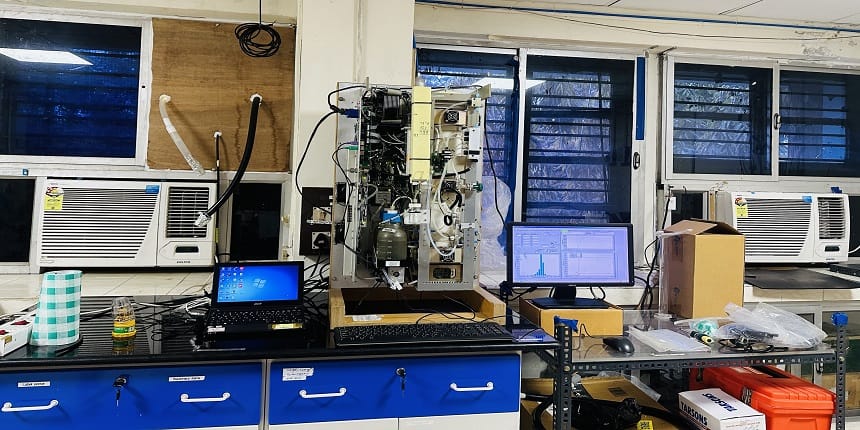IIT Madras study finds role of power plant emission in cloud formation
Divyansh | August 11, 2023 | 03:09 PM IST | 2 mins read
A group of 27 researchers hailing from 17 institutions across eight countries studied on atmospheric conversion of power plant emissions.

NEW DELHI: A team of Indian Institute of Technology Madras, or IIT Madras, has carried out a study on atmospheric conversion of gaseous emissions from power plants. The study provides insights for framing policies related to controlling the particulate matter that are 2.5 micron or less in diameter (PM2.5).
IIT Madras led this global collaborative effort wherein a group of 27 researchers from 17 distinct institutions across eight countries participated. The group found that atmospheric conversion of gaseous emissions from power plants into PM results in particles that are rich in sulphate and consequently have high cloud forming potential compared to natural counterparts.
Also Read | IIM Lucknow hosts G20 University Connect; discusses global economic opportunities, challenges
The findings of this study are reported as a scientific research paper published this week in the reputed peer-reviewed npj Climate and Atmospheric Science, which is part of the prestigious Nature Group of Publications and has an Impact factor of 9.5.
The researchers, led by Sachin S Gunthe of the Centre for Atmospheric and Climate Sciences at IIT Madras, delved into the impact of emissions from the Neyveli coal-fired power plant located about 200 km south of Chennai, Tamil Nadu, on aerosol growth and cloud-forming properties during the COVID-19-induced lockdown.
IIT Madras said this study imparts valuable insights into the consequences of reduced human-related emissions on aerosol traits and cloud formation, thereby advancing our comprehension of the implications of coal-fired power plant emissions in the context of climate change.
Gunthe said, “Our study provides a rare opportunity to examine the sensitivity of cloud-forming aerosol particles to new particle formation and growth due to SO2 emissions from a coal-fired power plant under relatively cleaner conditions. These findings have important implications for assessing the climate impacts of anthropogenic aerosols and highlight the need for comprehensive emission control measures.”
The observations and analyses presented in the research paper offer a rare chance to explore how aerosols with the ability to form clouds react to new particle formation and growth resulting from sulphur dioxide emissions from a coal-fired power plant. This occurs under relatively cleaner conditions in tropical India.
Follow us for the latest education news on colleges and universities, admission, courses, exams, research, education policies, study abroad and more..
To get in touch, write to us at news@careers360.com.